Student Experience | Research to Practice | Spanish Language Specialization | Success Story | Accreditation | Information Session | Apply Now
About the School Psychology Program
Are you passionate about making a substantial impact in school psychology and education locally, nationally, and internationally? The UO School Psychology (SPSY) Program will prepare you to become a skilled practitioner and leader in the field. We offer an Education Specialist (EdS) degree program and a 5-year doctoral program in School Psychology, with both programs leading to state PreK-12 licensure and national certification as a school psychologist. We value and support the empowerment of our students and the perpetuation of a highly collegial program environment, where we strive for positive and cooperative professional relationships among and between faculty and students.
Our program prepares school psychologists to conduct and evaluate research, and to deliver evidence-based interventions to PreK-12 children and youth in schools and related settings within a behaviorally-oriented perspective. Students are prepared to deliver services to individuals, families, small groups and classrooms, and across entire schools and systems. We strive to train scientist-practitioners, with a data-oriented problem-solving emphasis.
The program prepares school psychologists to provide effective, evidence-based services to individuals and groups with a wide variety of strengths and needs. But we particularly value primary prevention and early intervention approaches, which include universal screening and prevention services to detect and intervene early before problems become severe. This emphasis supports an outcomes-driven model of service delivery, focused on health rather than pathology, and focused on desired outcomes rather than on problems.
We are known for this strong emphasis on state-of-the art applied research and development efforts in the field of education. Through these efforts, our faculty, students, and alumni have helped improve systems of service in schools, and improved outcomes for children, youth, and their families.
We offer two graduate degree programs:
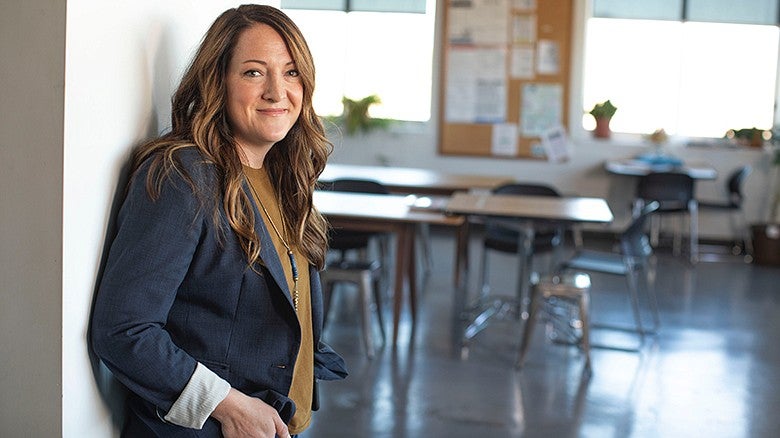
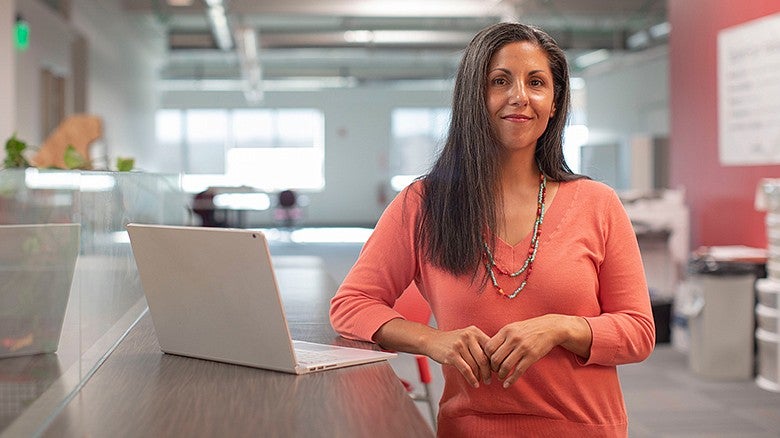
Students may enter the doctoral program with or without a master’s degree. Students who enter with school psychologist licensure may enter as “non-licensure” students. Prior graduate coursework and/or professional licensure may reduce the amount of time needed to complete the doctoral program.
Although not required, doctoral students may elect to complete additional specialized coursework and/or degrees on the way to earning their PhD:
- Through a partnership with the Special Education Program, doctoral students may earn MS degree in Special Education to further develop their knowledge and skills for working with special educators and students with disabilities.
- Through a partnership with the Counseling Psychology Program, doctoral students may earn a Specialization in Spanish Language Psychological Service and Research to further develop knowledge and skills for working with Latinx Spanish-speaking populations.
What can I do with a graduate degree in school psychology?
The program prepares graduates to pursue a variety of careers. Graduates of our education specialist program are prepared to become practicing school psychologists in PreK-12 school settings, where they often advance to leadership positions. Graduates of our doctoral program are prepared for similar careers, as well as careers in higher education, clinical settings, and district or state-level leadership.
Education Specialist (EdS)
- Practice in School Settings
- Assessment in PreK-12 Settings
- Academic and/or Social Learning interventions
- School District and State Leadership
- Research and Evaluation
- Consultation and Collaboration with Educators, Families, and Communities
Doctoral
- Clinical Practice in School or Community Settings, including Evaluation, Diagnosis, and Interventions
- Research and Program Evaluation
- University Faculty Members
- School District and State Leadership
- Consultation and Collaboration
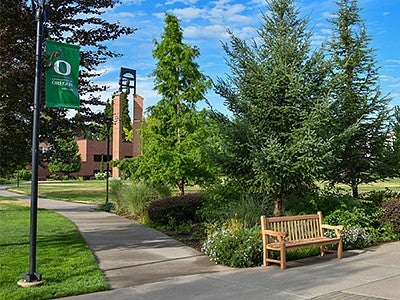
Students can complete the UO School Psychology Education Specialist (EdS) degree while living in the greater Portland area all while working closely with world-renowned faculty.
I want to learn more about the Education Specialist degree available in Portland!
Our faculty has a long history of innovation and cutting-edge research that has served to shape and continues to impact the field of EI/ECSE. Carefully sequenced coursework and hands-on practicum experiences provide students with a rich learning experience focused on effective strategies for supporting infants, toddlers, and preschoolers with disabilities in home, school, and community settings.
Spanish Language Specialization
School Psychology students may also add the Spanish Language Specialization, which is housed within the Counseling Psychology program.
Spanish Language Specialization
Take the Next Step
Email us, take an exploratory course, or apply to the program. We are here to answer questions about how the graduate degree in school psychology can help you lead the future.
The Student Experience
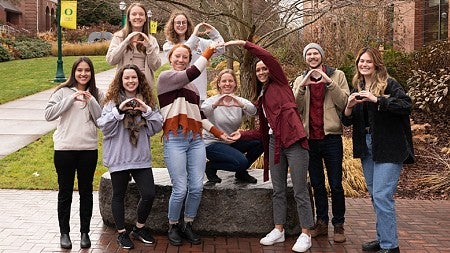
This emphasis supports an outcomes-driven model of service delivery, which is focused on health rather than pathology, and is focused on desired outcomes rather than on problems. We are known for this strong emphasis on state-of-the-art applied research and development efforts in the field of education. Through these efforts, our faculty, students, and alumni have helped improve systems of service in schools, and improved outcomes for children, youth, and their families. We value and support the empowerment of our students and the perpetuation of a highly collegial program environment, where we strive for positive and cooperative professional relationships among and between faculty and students.
Students take foundational coursework, participate on faculty-led research teams, and complete field-based clinical training. We use a scientist-practitioner training model, in which students learn to be critical consumers of research, use research to inform their work across domains of school psychology practice, and to design and conduct research with a focus on prevention and intervention.
Graduate Student Showcase
Meet our School Psychology graduate students and learn about their varied background, research interests, and future aspirations.
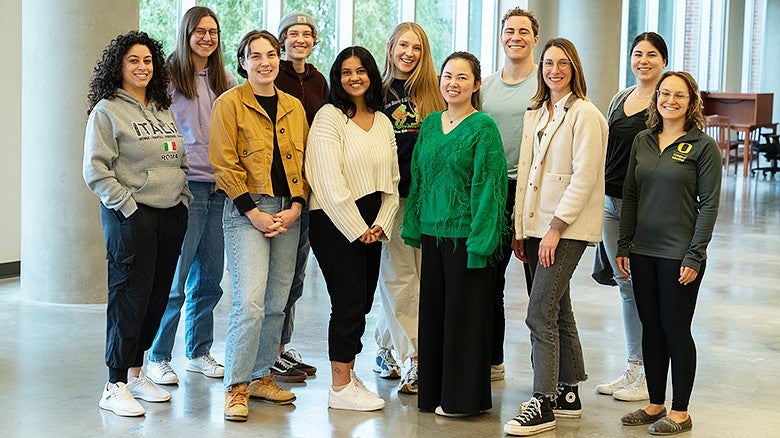
Hands-On Experience
Coursework and hands-on clinical training experiences are sequential, and are designed to meet school psychology licensure requirements.
Education Specialist (EdS) students begin with an observational field study in local schools during the first year, then complete a part-time 360+ hour supervised practicum in a PK-12 public school setting during the second year, and finish with a full-time 1200+ hour supervised internship in a PK-12 public school setting during the third year.
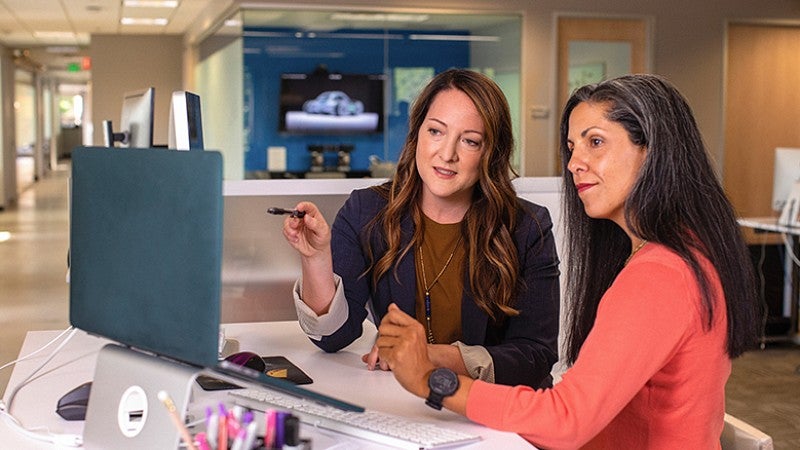
Doctoral students complete the same sequence, plus have the option to complete more specialized advanced practicum experiences in campus-based clinic settings during the third and fourth years, prior to internship during the fifth year. Students receive close professional mentoring from faculty and field supervisors during practicum and internship experiences.
What Our Students Are Saying...
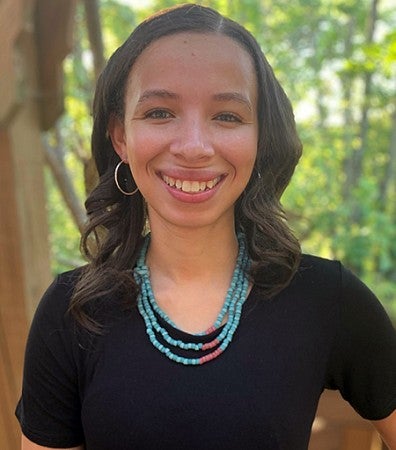
Jillian C. Hamilton '22
"After graduating with my PhD next year, I’ll most likely continue my training with a post-doc. As someone interested in neurodevelopmental disabilities, it is important to receive more specialized training in this area perhaps in a clinic or hospital setting. I love hearing about the fantastic sites where the students above me have completed additional training.
Long-term, I hope to work in a community or university clinic providing primarily assessment and some intervention services for children with developmental disabilities and their families. I am also interested in continuing research in a smaller capacity.
My primary professional goal is to expand access to critical services and knowledge for populations who are typically marginalized (e.g., families of color, low- income families). Short-term: more reading for fun, biking, tennis, doing yoga, cooking/baking with a lot more free time!"
Research to Practice
All tenure-related faculty in School Psychology lead research teams that conduct cutting-edge applied research in areas such as early numeracy and mathematics interventions, mental health outcomes in adolescents, emotion and self-regulation, early identification and treatment of childhood developmental and behavioral problems, school readiness, and parenting. A common theme across faculty research is the promotion of equity and inclusion in underserved groups. Doctoral students are active participants on these research teams, and receive additional training through advanced coursework in statistics and grant writing, completion of dissertation research, research assistantships, and opportunities to publish and present at professional conferences. Education Specialist (EdS) students on our Eugene campus may also have opportunities to participate on faculty-led research teams to gain experience with research design, implementation, data analysis, and dissemination activities.
Success Story
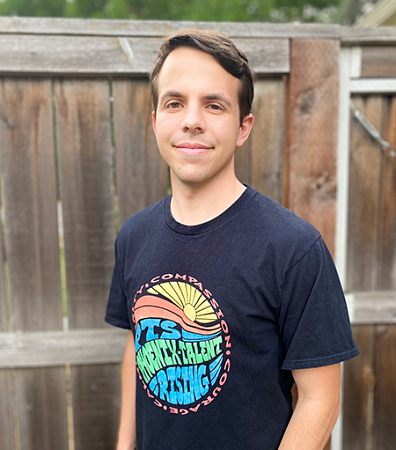
Derek Rodman, '18
"As a student in the UO School Psychology Masters Program, I was fortunate to receive several hands-on experiences that were valuable for my development as a school psychologist. One experience was delivering academic interventions to at-risk students at the Center on Teaching and Learning (CTL) Clinic at HEDCO. We were trained on providing academic instruction using evidence-based curricula and then delivered interventions to a small group of elementary-aged students."
Commitment to Inclusion and Social Change
We strive to promote an inclusive and collegial program environment, in which students are supported through close advising relationships with faculty, professional practice mentorship from university and field supervisors of practicum and internship, research and teaching mentorship from faculty, and support from academic program staff. Our students develop close relationships with peers through use of our cohort model, attending professional development and career workshops, and through our active student association, the Association of School Psychology Students (ASPS).
Accreditation
Both the SPSY doctoral and Education Specialist (EdS) programs are accredited by the National Association of School Psychologists and are approved by the Oregon Teachers Standards and Practices Commission for the educational licensure of school psychologists in the state of Oregon.
The doctoral program is also accredited by the Commission on Accreditation of the American Psychological Association.
Questions related to the program's accredited status should be directed to:
Commission on Accreditation
Office of Program Consultation and Accreditation
American Psychological Association
750 1st St. NE, Washington, DC 20002
Phone: (202)336-5979, Email: apaacred@apa.org
APA accreditation website

